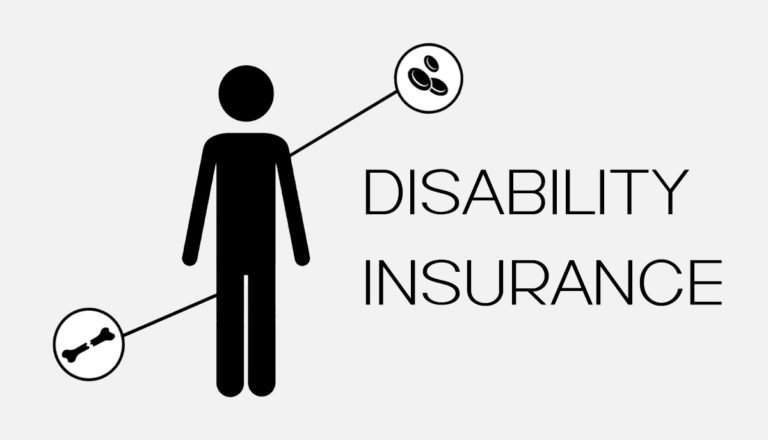Disability insurance is a type of insurance policy that provides financial protection to individuals who are unable to work due to an illness or injury. The policy pays out a percentage of the individual’s income if they become disabled and cannot work, helping them to cover their living expenses while they recover.
The coverage typically includes both short-term and long-term disability benefits. Short-term disability insurance covers a temporary disability, typically up to six months, while long-term disability insurance covers a disability that lasts longer than six months and may continue until the individual reaches retirement age.
Disability insurance can be purchased as a stand-alone policy or as part of a group plan provided by an employer. The cost of disability insurance varies depending on factors such as the individual’s age, health status, and occupation.
It is important to note that disability insurance only pays out if the individual becomes disabled and is unable to work. Therefore, it is crucial to carefully review the terms and conditions of the policy to ensure that it meets the individual’s needs and provides adequate coverage in the event of disability.
Types of disability insurance
There are several types of disability insurance that individuals can consider based on their needs and circumstances. Here are some of the most common types:
1. Short-term disability insurance: This type of insurance provides coverage for a temporary disability that may last for a few weeks up to six months. The policy pays out a portion of the individual’s income during the period they are unable to work.
2. Long-term disability insurance: This type of insurance provides coverage for a longer period, typically up to retirement age, in the event of a serious or chronic disability. The policy pays out a percentage of the individual’s income on a regular basis, usually monthly, until they are able to return to work or until the policy expires.
3. Group disability insurance: This type of insurance is typically offered by employers as part of their benefits package. Group disability insurance covers a group of individuals, usually employees of a company, and provides a portion of their income if they become disabled and unable to work.
4. Individual disability insurance: This type of insurance is purchased by an individual outside of an employer-sponsored plan. It provides customized coverage to meet the individual’s specific needs, based on their occupation, income, and other factors.
5. High-limit disability insurance: This type of insurance provides coverage for individuals with high-income levels, who may need additional coverage beyond the limits of standard disability insurance policies.
It’s important to carefully review the terms and conditions of each type of disability insurance policy to ensure that it meets your needs and provides adequate coverage in the event of disability.
Who needs disability insurance?
This insurance is recommended for anyone who relies on their income to support themselves or their family. While everyone is at risk of experiencing a disability due to illness or injury, some individuals may be at higher risk than others.
Here are some examples of individuals who may need disability insurance:
1. Self-employed individuals: If you run your own business or work as a freelancer, you may not have access to employer-sponsored disability insurance, making it important to consider purchasing an individual disability insurance policy.
2. Individuals in high-risk occupations: People who work in physically demanding jobs, such as construction workers, firefighters, or professional athletes, are more likely to experience a disabling injury and may benefit from having disability insurance coverage.
3. Sole breadwinners: If you are the sole earner in your family and your income is necessary to cover living expenses, then disability insurance can provide peace of mind in the event that you are unable to work due to a disability.
4. Those with a history of health issues: If you have a pre-existing health condition that could potentially lead to a disability, then disability insurance can be especially important to protect your income.
5. Parents with dependents: If you have children or other dependents who rely on your income, then disability insurance can help ensure that their needs are met if you are unable to work due to a disability.
In summary, disability insurance is an important form of protection for anyone who depends on their income to support themselves or their family.
Conclusion
In conclusion, disability insurance is a crucial form of protection for individuals who rely on their income to support themselves or their families. Disability insurance policies provide financial support in the event of an illness or injury that causes the individual to become disabled and unable to work. With various types of disability insurance available, it is important to carefully review and consider the coverage that best fits an individual’s needs and circumstances. By securing disability insurance, individuals can have peace of mind knowing that they are protected in the event of an unexpected disability.
If you have any questions about this post contact us at techinfopk.
